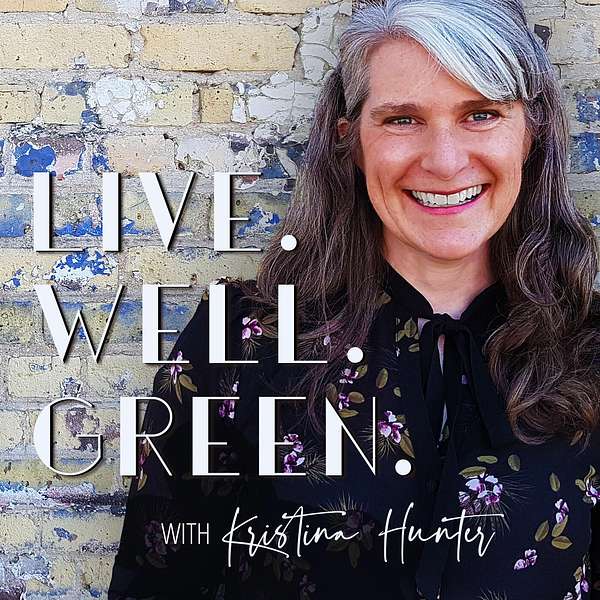
Live. Well. Green.
How can I live a more sustainable life? What actions really make a difference for the earth? How can I live a better, greener life? How do I deal with eco-guilt? How can we create a better future for ourselves, society and the planet? The Live. Well. Green. podcast addresses these big questions and finds practical solutions for living lighter on the earth while working towards social and personal wellbeing. With over 20 years of experience in the field of sustainability and environmental health, teaching these subjects to more than 10,000 students in post-secondary programs of Environmental Science, Environmental Studies, Architecture, Community Health Sciences, and MBA programs, host Kristina Hunter brings evidence-based concepts and solutions to each episode. Do you want to find inner calm while living more sustainably? Do you wish there was a trustworthy source of information for greener living? Do you seek evidence-based information on how to do the right thing for the planet? Then this is the podcast for you. Here we find real solutions to environmental issues while living better with ease. Kristina provides practical steps that you can take to implement Sustainable Wellbeing and Green Living without adding to your daily time-pressures. This is where sustainable living and personal wellness meet, and this is where people and the planet truly flourish! www.KristinaHunterFlourishing.com
Live. Well. Green.
Episode 59: Why are children more vulnerable to environmental contaminants?
•
Kristina Hunter
•
Episode 59
Why are children more vulnerable to environmental contaminants? It turns out that children are not just small adults, they have a number of behavioral and physical factors that actually put them at greater risk than adults to environmental contaminants.
This includes the fact that kids are still growing and developing. Their nervous systems, brains, and reproductive systems continue to grow and develop into early adulthood and are more susceptible to damage from man-made chemicals.
They also have behaviors such as the foods and non-foods that they eat that put them at greater risk and other factors. Find out more in this episode!
Check out our blog HERE